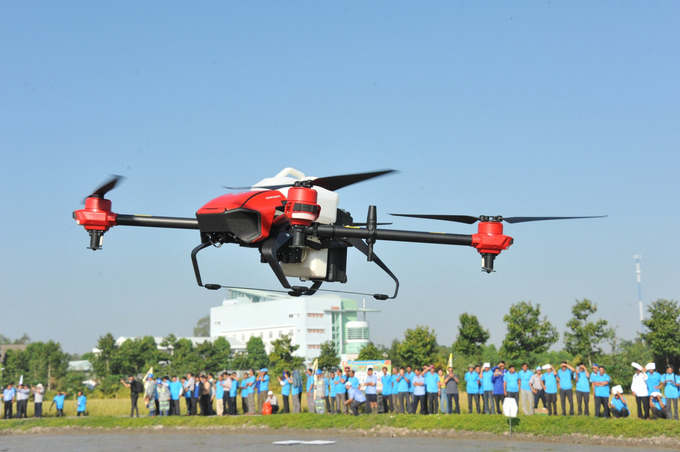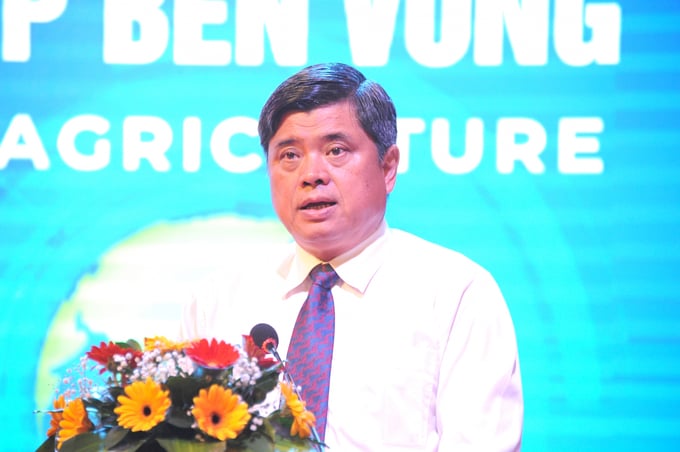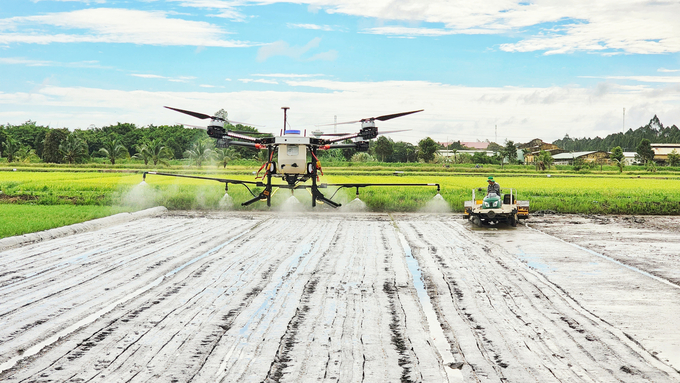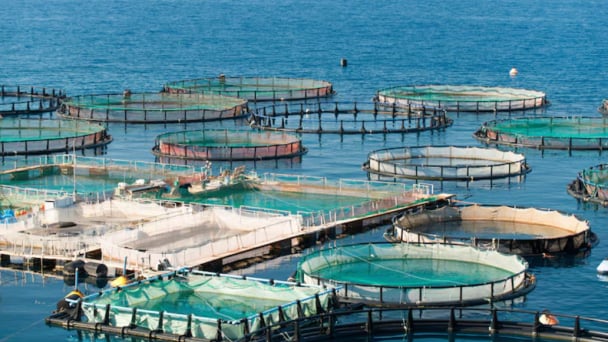June 3, 2025 | 19:55 GMT +7
June 3, 2025 | 19:55 GMT +7
Hotline: 0913.378.918
June 3, 2025 | 19:55 GMT +7
Hotline: 0913.378.918
Mechanized equipment for agroproduction is currently increasing, reaching a relatively high rate. To be more specific, the rate of mechanization has reached 70-100% in cultivation and 55-90% in animal husbandry. Machinery and equipment have also been widely applied in the fishery sector. Supporting the trend of mechanization are over 7,800 mechanical enterprises existing nationwide, and more than 270 scientific research organizations and 538,700 mechanical workers, over 4,000 agricultural cooperatives participating in association with 1,867 enterprises. in the production, processing and consumption of agricultural products.
The trend of mechanization has received the attention and support of more than 7,800 mechanical enterprises nationwide, more than 270 scientific research organizations and 538,700 laborers. Over 4,000 agricultural cooperatives have associated with 1,867 enterprises in agro-product production, processing and consumption link chains.
These are the results announced at the Workshop "Synchronous mechanization towards sustainable agriculture" held on August 24 in Can Tho City - part of the series of activities of the Agritechnica Asia Live 2022.

Mechanized equipment for agroproduction is currently increasing, reaching a relatively high rate. Photo: Le Hoang Vu.
Over the past time, the Government along with local ministries and sectors have had many guidelines and policies to help farmers apply agricultural mechanization, receive credit support, and attain favorable conditions to apply machines to agriculture. The Ministry of Agriculture and Rural Development is also submitting to the Government a Decree on synchronous mechanization in agriculture as a legal basis for implementation in agroproduction in the near future,” said Deputy Minister of Agriculture and Rural Development Tran Thanh Nam.
From the Deputy Minister’s point of view, synchronous mechanization is not just about the machine as it is just a production tool. Synchronous mechanization should be understood more broadly as the whole synchronization process at all production stages from harvesting, preliminary processing, processing, and finally bringing products to market. Synchronous mechanization is also about the integration of smart technology and digital technology. This requires the participation of the State, businesses, international organizations, cooperatives, and farmers.

Synchronous mechanization is not only about the machine but also the whole process of synchronization at all production stages. Photo: Le Hoang Vu.
“The main focus of the synchronous mechanization process is farmers, so it is necessary to determine what machines and equipment farmers need to be suitable for the field to promote efficiency. Businesses themselves sometimes do not fully understand what farmers need. Therefore, each enterprise needs to join forces to perfect the value chain and put in full effort to reorganize production through the form of cooperatives. This way businesses can expand the production scale much further. Machines and technologies are now abundant in Vietnam, but the important question is how can we help farmers utilize them effectively. There is still a lot of room in all stages of the production process for businesses to invest,” said the leader of the agriculture sector.

It is necessary to have the policy to attract students to major in agricultural mechanics. Photo: Kim Anh.
Dr. Nguyen Huy Bich, Dean of the Faculty of Mechanical Engineering - Technology, University of Agriculture and Forestry of Ho Chi Minh City, member of the Standing Committee of the Vietnamese Society of Agricultural Engineering (VSAGE), said that human resource training plays an important role in the process of mechanization.
In fact, in the whole country, there are only faculties of mechanical engineering under two agricultural universities in Hanoi and Ho Chi Minh City that train and have students majoring in agro-forestry mechanics. The picture of engineer training and graduate training majoring in agricultural mechanics still looks very limited.
Added with the situation that the level of agricultural mechanization is low, asynchronous, and has not met the practical needs and requirements of sustainable development, Dr. Bich said that it was deemed essential to have a reasonable policy to support learners and attract students to agricultural mechanics.
Expanding the matter, Dr. Bich suggested that there should be a focal point to play the role of "conductor" in charge of the entire agricultural mechanization work in key agricultural regions as well as the whole country. The ultimate goal is to develop a unified policy to develop the agricultural machinery industry and thus create momentum for the application of mechanization and promote agriculture toward a sustainable direction.
Translated by Samuel Pham

(VAN) Technology is redrawing the map of Vietnamese aquaculture: more modern, greener, and more sustainable.

(VAN) Novel process harnesses machine learning to reveal groups of genes that determine how efficiently plants use nitrogen.

(VAN) Several scientists and farmers are experimenting with soil treatment in some key durian-growing regions such as Cai Lay (Tien Giang), Dak Song, Gia Nghia, and Dak R’lap (Dak Nong).
/2025/05/25/4127-3-073637_820.jpg)
(VAN) Thanks to the promotion from an FAO-implemented project, vegetable production in greenhouses in Moc Chau has seen strong development, from 1.5 hectares in 2021 to nearly 50 hectares in 2024.

(VAN) FAO has recently supported USD 140,000 to implement the project 'Risk mitigation human-animal interface risks through disease control initiatives in pig farming.'

(VAN) The People's Committee of Tra Vinh province has approved an adjustment to the investment policy for the Green Hydrogen Plant project, increasing its area to approximately 52.76 hectares.
![Reducing emissions from rice fields: [2] Farmers’ commitment to the soil](https://t.ex-cdn.com/nongnghiepmoitruong.vn/608w/files/news/2025/05/05/dsc08881jpg-nongnghiep-140632.jpg)
(VAN) Clean rice cultivation model in Thuong Tan commune, Bac Tan Uyen district, is assisting local residents in achieving sustainable agriculture by substantially reducing costs, increasing productivity, and protecting the environment.